Creativity hits the runway at Paris Fashion Week 2021
Fashion as an industry, has long influenced culture, and provided a platform for creative expression. Yet, while seemingly predominantly female, it remains heavily male-run. More than 85% of graduating majors from top fashion schools are female, but only 14% of the biggest fashion brands are run by women. Enter Iris van Herpen.
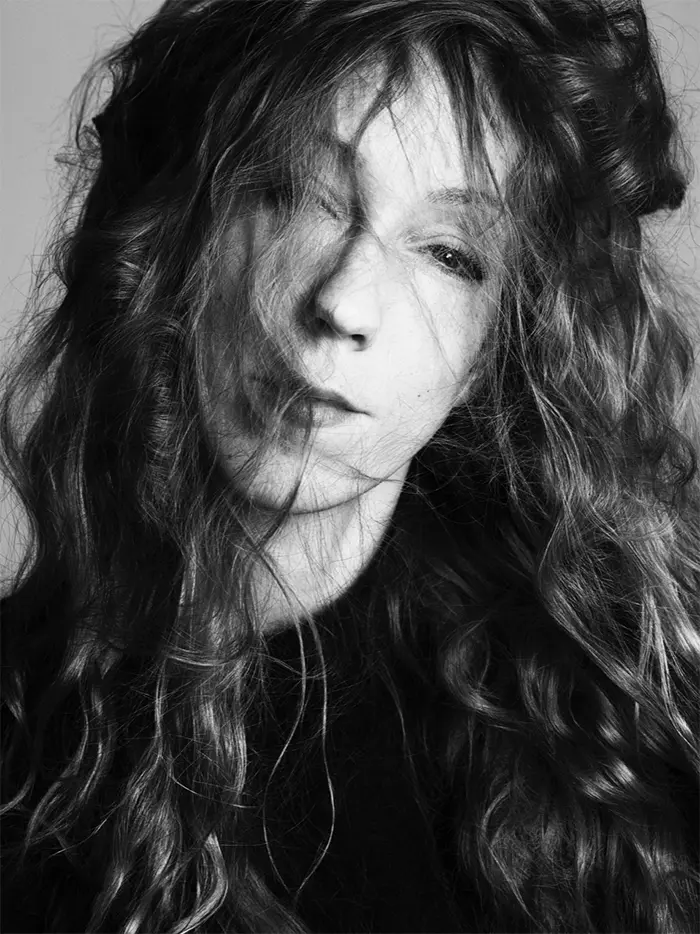
A Dutch fashion designer, artist, and inventor, Iris combines fine handwork techniques with digital technology. With a background in classical ballet, her designs focus on new forms of femininity and movement around the body. She works to express the character and emotions of a woman and to extend the shape of the feminine body in detail. Each design and collection are exploring new forms of expression and challenging traditional notions of the handmade. Celebrating female empowerment, the Amsterdam-based atelier is run by Iris van Herpen, who values a collaborative design process with partners from a variety of industries — from music, to dance, to world champion female skydivers.
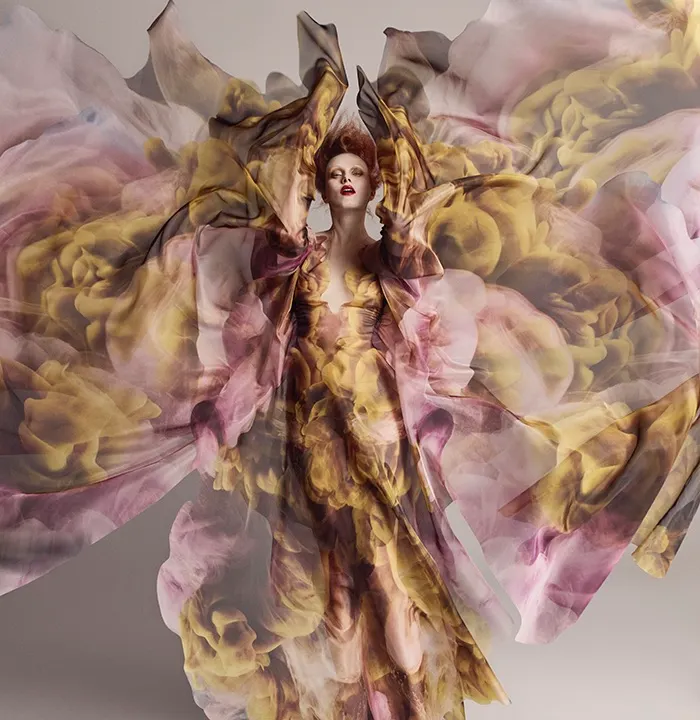
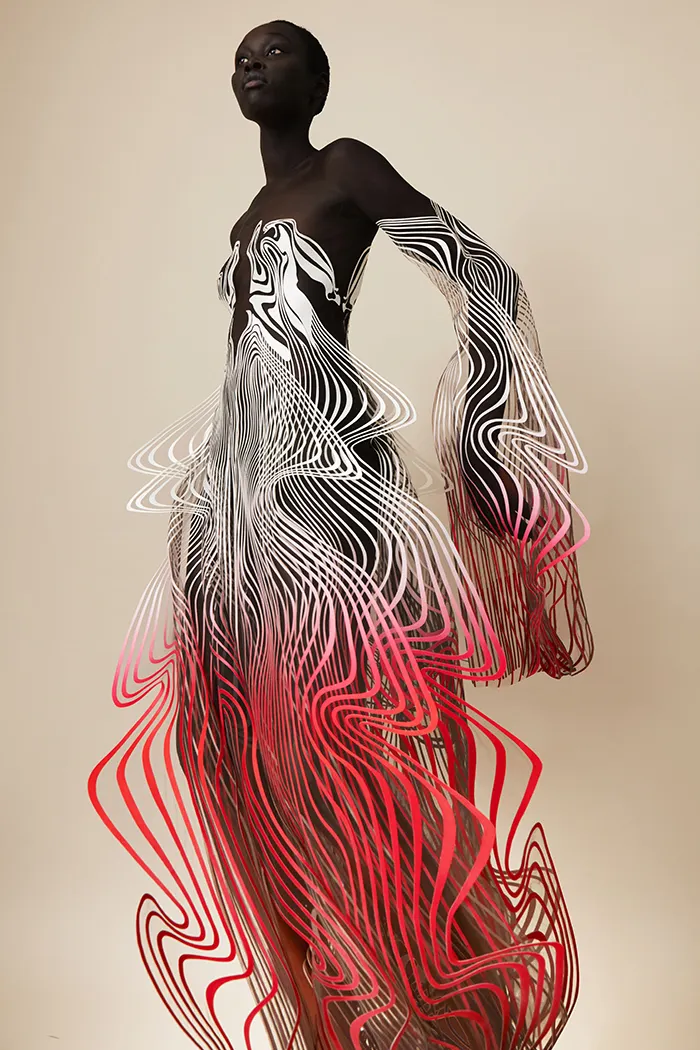
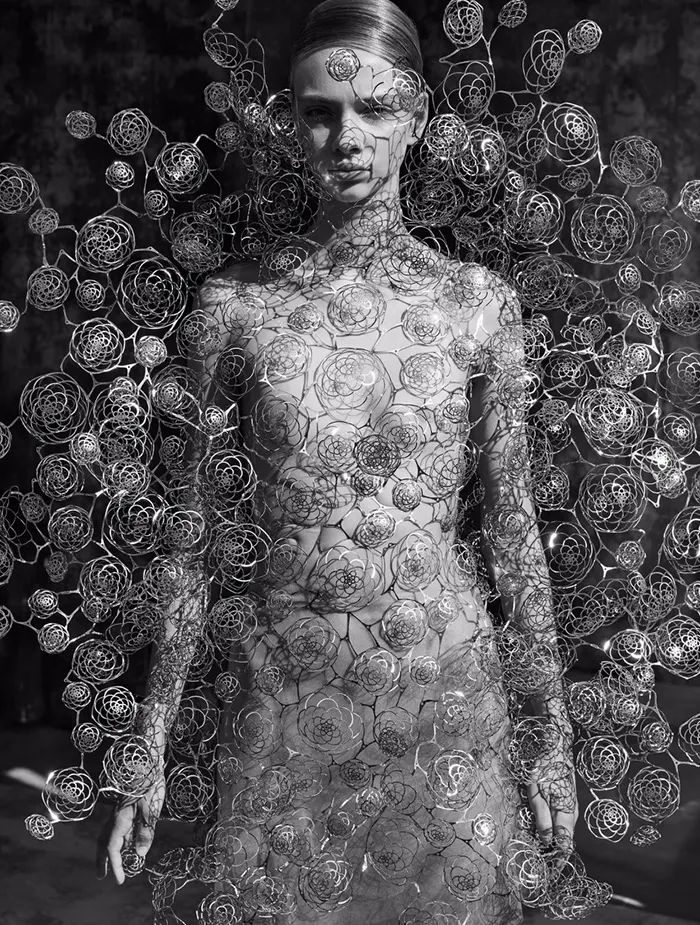
As one of the most progressive female designers in fashion, we asked Iris to create a custom dress in her own unique style and voice that speaks to how creativity and Adobe are helping shape the fashion industry.
The result from the Iris van Herpen x Adobe collaboration is a beautiful, one-of-a-kind dress that will walk down the runway at the closing event for Paris Fashion Week 2021 – the Love Brings Love Alber Elbaz tribute show.
Adobe VP of brand marketing, John Travis, said: “Fashion is a language of creativity and expression, it’s one of the ways we communicate and connect. Adobe’s thrilled to be collaborating with forward-thinking designer, Iris van Herpen, and for the world to share in her unique artistic expression.”
Elbaz, the creative director of Lanvin from 2001-2015 and founder of AZ Factory, a brand focused on “developing solutions for women of our times,” pioneered accessibility in the fashion world. Unfortunately, the world lost Elbaz in April 2021. To celebrate his life, Iris and more than 40 other couture houses will convene in the AZ Factory design studio for Love Brings Love, to close out Paris Fashion Week. Iris herself is excited to be part of such an important celebration – “Alber Elbaz has meant so much to me and to the fashion world. He was someone that brought the family together.” And we’re excited too.
Fusing new perspectives
Foundational and integral to van Herpen’s work is her intentional multi-disciplinary approach with creatives and industry leaders beyond the fashion world — infusing science, architecture, and technology into her artistry. She credits Elbaz as one of her inspirations and for teaching her the value of other voices and the power of inclusion. “I feel it’s important to have these new perspectives within fashion,” says Iris, who believes that fashion is an expression of who we are. If an industry desires to reflect who we are, it must include a wide range of voices. Iris describes her work as ultimately “expressing the life we’re in” and “looking at life from different perspectives and trying to capture the complexity of it.” When diverse voices are integrated into the creative process and product, this becomes reality.
Iris van Herpen’s career reflects the work of an artist bringing together and empowering other voices. Her work is created by women for women, and she leads a women-owned business, which is a rarity in her industry. “Running your own business in fashion is, of course, a big challenge. But I think at the same time, it’s a very exciting moment that we’re in, because, as we all know, the world is in such a transformation.”
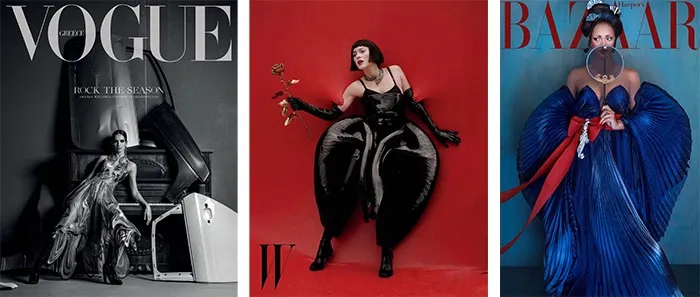
Iris is an artist who is not bridled by fear of failure or constrained by convention. “There is a lot of space to reinvent the whole system of fashion. And I think that’s where the opportunity lies for new creators, new fashion designers. Don’t try to copy anything that’s before you.”
Inspired by nature
Van Herpen’s fashion artistry is a rare combination of classical elegance and striking modernity, capturing the vivid spectrum of feminine form and essence. She describes her work as a dance that combines classical ballet and contemporary. A multi-dimensional artist who evolved from dancer to designer, you can see expressions of energy and movement in all her creations.
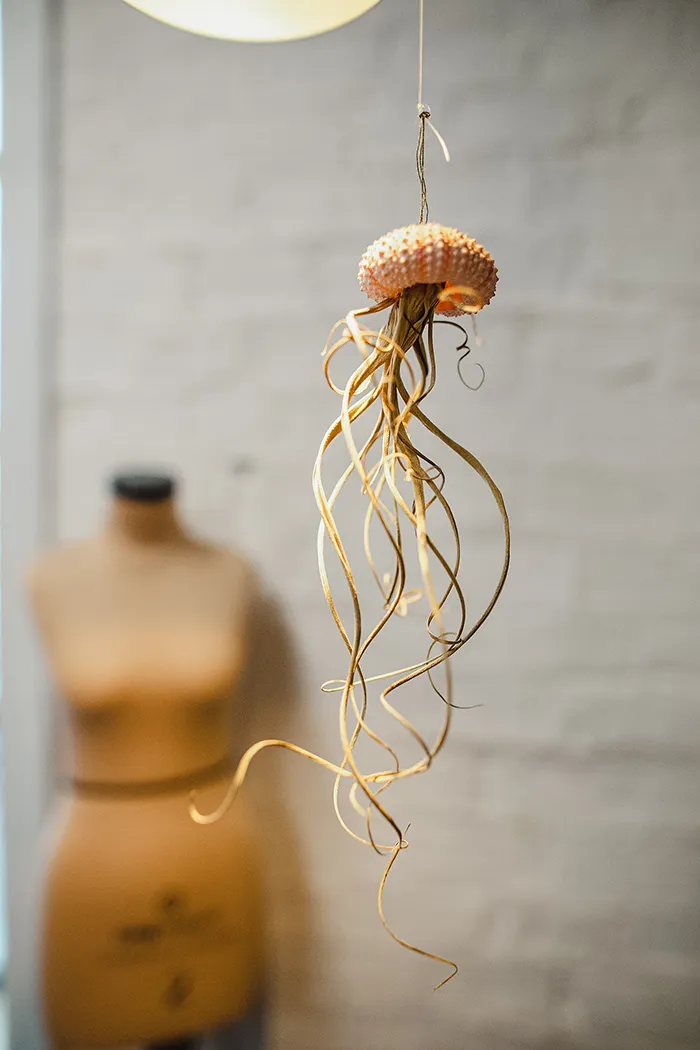
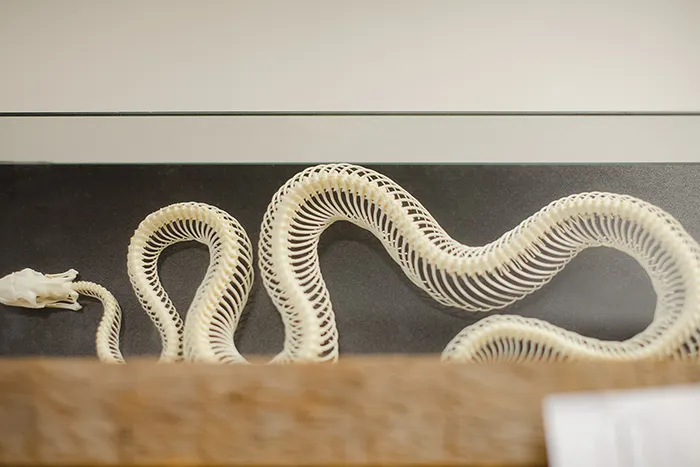
The creative process resembles and amplifies the attributes of her favorite muse. “The purest form of inspiration comes from nature,” she said. “It’s infinite. Nothing I can think of hasn’t been done already in a better way by nature. It’s this pure vast space of possibility. And the longer I design, the more layers I discover within nature.”
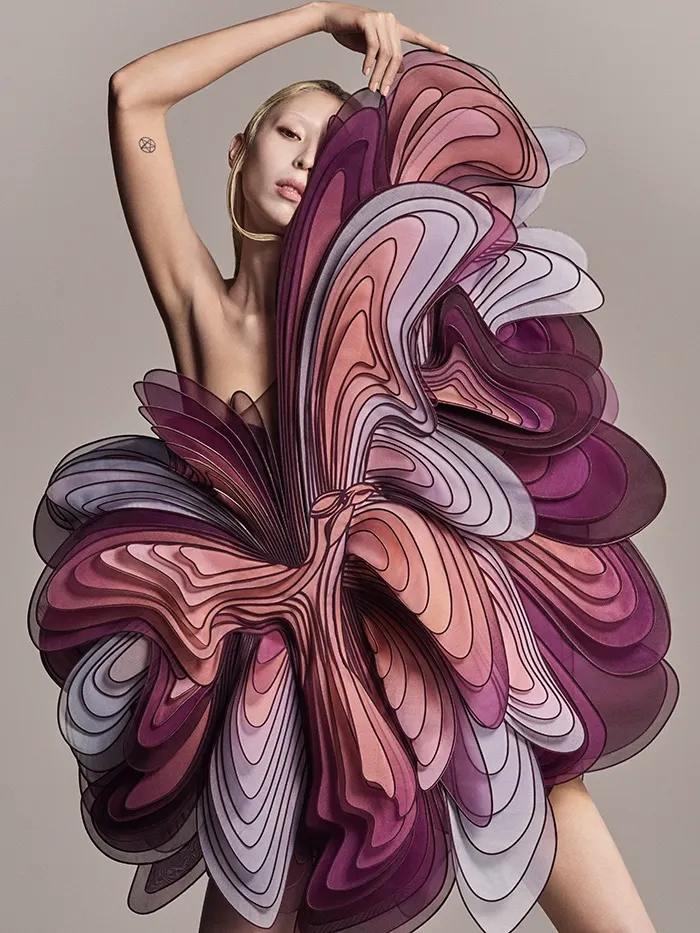
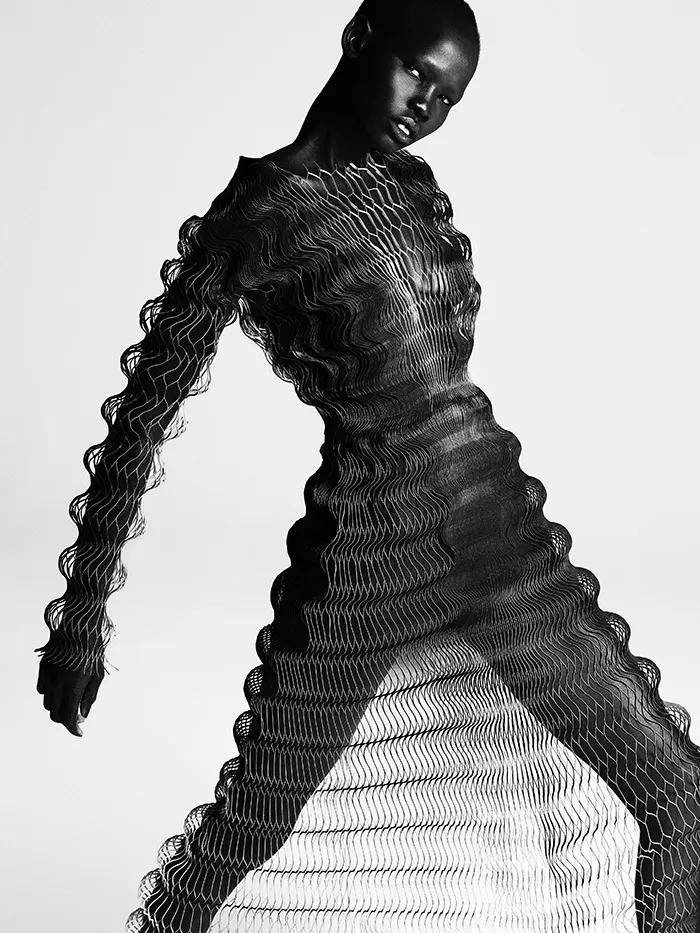
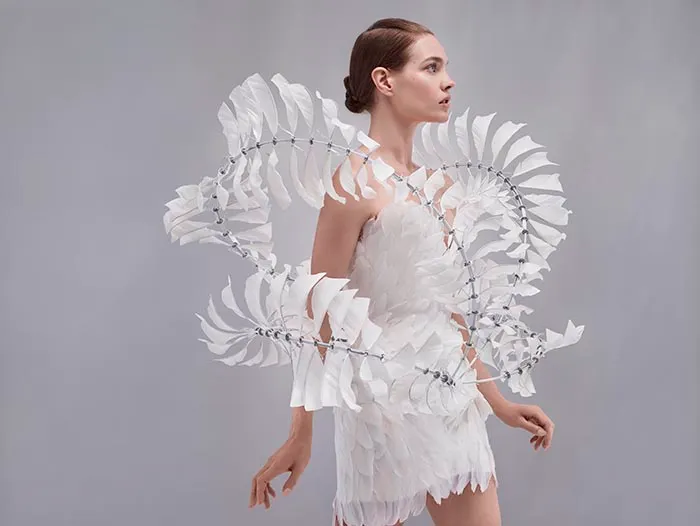 In nature, there is control and chaos, and the tension between order and spontaneity. You can trace this dichotomy in Iris’s work through patterns of precision and then explosive bursts of energy and color. She believes that meticulous detail must give way to elements of disruption, akin to nature, for a garment to truly be alive.
In nature, there is control and chaos, and the tension between order and spontaneity. You can trace this dichotomy in Iris’s work through patterns of precision and then explosive bursts of energy and color. She believes that meticulous detail must give way to elements of disruption, akin to nature, for a garment to truly be alive.
Combining digital and traditional
From start to finish, Iris van Herpen uses Adobe Photoshop and Adobe Illustrator to create her designs and bring them to life in a two-dimensional and three-dimensional form. Her style includes a layering technique. Her designs are complex, which makes the process far more technical than most, as the traditional is infused by the digital through laser cutting and digital fabrication. “It’s really about merging craftsmanship and technology together and celebrating creativity,” she explains.
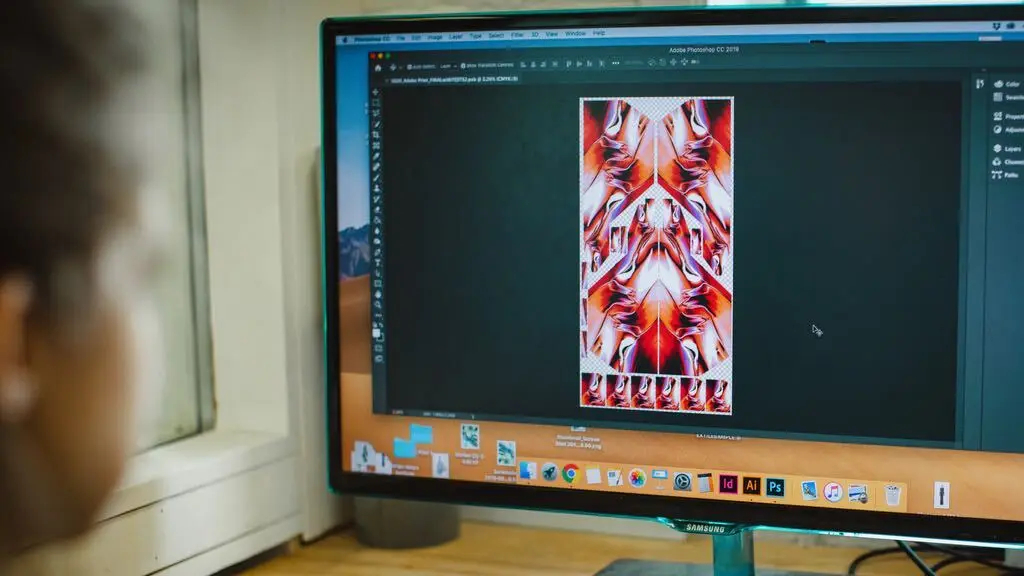 “Adobe sparks the creative process in combination with technologies and the tools they are creating. And that is a very natural fit for what I’m doing, because, in the atelier, we combined craftsmanship and other kinds of technology very seamlessly. So, it felt like a very beautiful collaboration that came quite naturally.”
“Adobe sparks the creative process in combination with technologies and the tools they are creating. And that is a very natural fit for what I’m doing, because, in the atelier, we combined craftsmanship and other kinds of technology very seamlessly. So, it felt like a very beautiful collaboration that came quite naturally.”
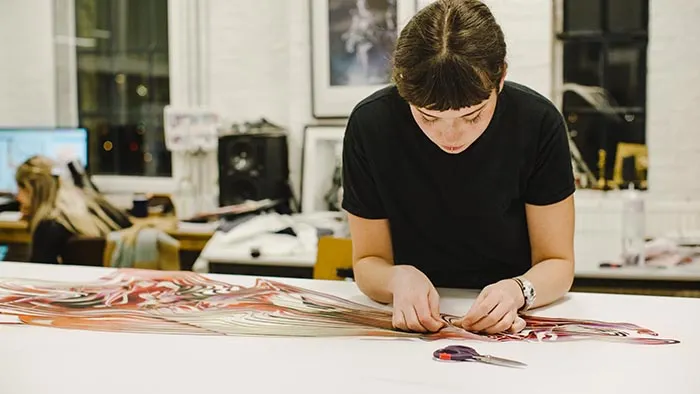
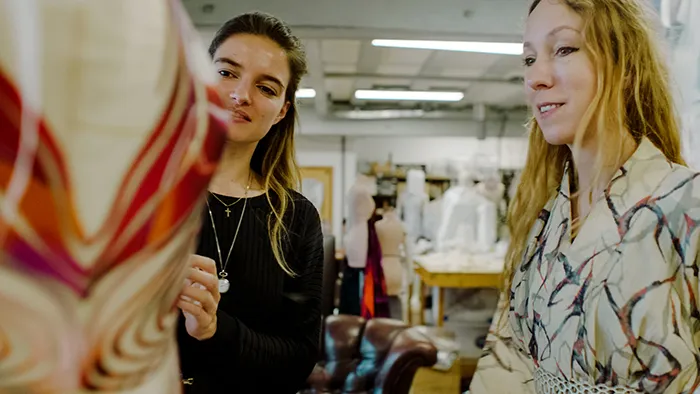
Intuition and process
Iris van Herpen leans into her intuitive process when working and she doesn’t restrict herself to a predetermined concept or definition of what the final product should be. She is process-driven, not results-oriented. The process evolves with the garment at every stage, allowing one design to build upon another. She reveals that she doesn’t always have “full control of the materiality” and often has “hardly any clue where it is going.”
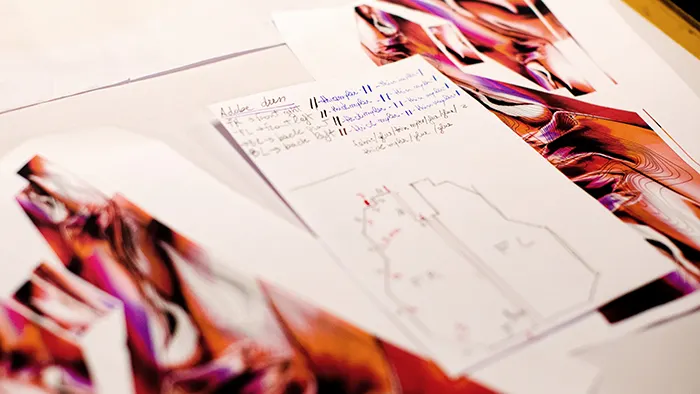
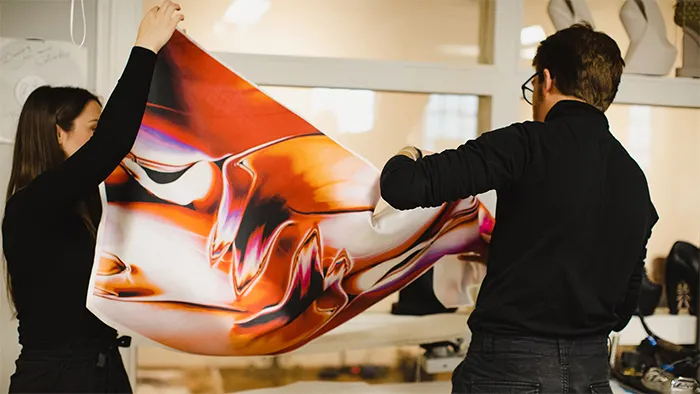
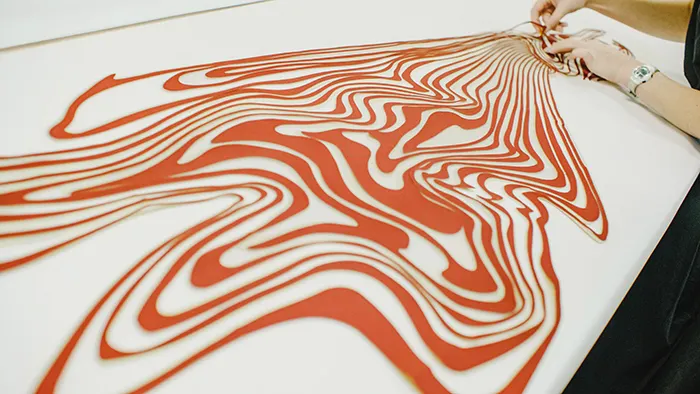
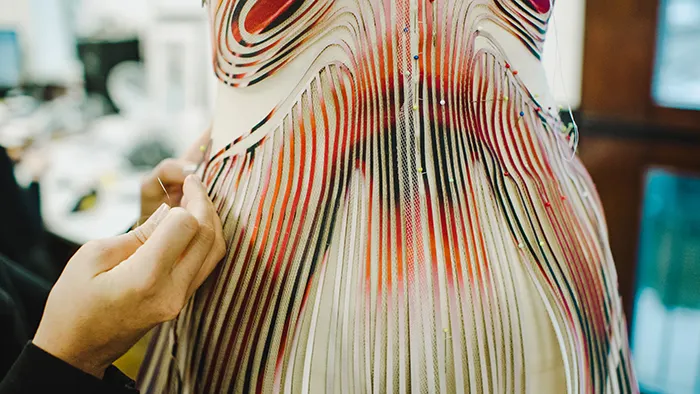
For her piece in the Elbaz tribute show, van Herpen was inspired by the transformation within nature, and specifically in this case, the patterns in water. There is a Japanese technique called Suminagashi in which they use the water motion with little drops of ink to create these very organic patterns. It might look somewhat random at first, but when you start to zoom in, there is a very beautiful precision within the organic-ness, within the chaos. She said, “I think Suminagashi embodies that dualism very beautifully, that fine balance between order and chaos within nature, and I translated that into the linework of this garment. The open space between two-dimensionality and three-dimensionality has been a really nice challenge in this piece, and I think it relates quite nicely to the tools that we are using from Adobe as well, because we made all the prints and the files using Illustrator or Photoshop.”
Sign in to read unlimited free articles






